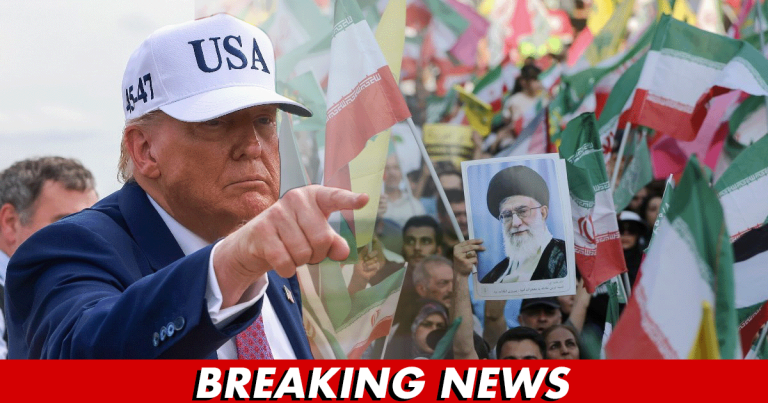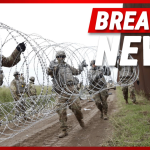
Middle East tensions have been growing for decades. Iran’s leaders keep threatening their neighbors and causing trouble. Think of it like a giant chess game where countries make moves to gain power. Recent events have changed who has the upper hand in this troubled region.
America plays a key role in this complex situation. Over the years, our approach to dealing with hostile countries has changed. Sometimes we’ve been too soft. Other times we’ve shown strength. The world watches closely as this high-stakes drama unfolds.
President Donald Trump has now made a bold statement about America’s military power in the fight between Israel and Iran. In posts on Truth Social, Trump announced that the United States now controls the skies over Iran.
From ‘The Post Millennial’:
“We now have complete and total control of the skies over Iran. Iran had good sky trackers and other defensive equipment, and plenty of it, but it doesn’t compare to American made, conceived, and manufactured ‘stuff.’ Nobody does it better than the good ol’ USA.”
This strong message comes as fighting between Israel and Iran gets worse. Israel recently struck Iran’s nuclear and military sites. Trump had said earlier that the U.S. wasn’t part of Israel’s first attacks on June 13. But his new comments hint that America is now involved or at least helping a lot.
The president’s words highlight that American technology is far better than Iran’s defenses. No matter what systems Iran has, they simply can’t match what the U.S. military can do. This shows why having a strong military keeps America safe from countries that wish us harm.
Direct Warning to Iran’s Supreme Leader
Trump didn’t stop there. He sent a clear warning directly to Iran’s top leader, Ayatollah Ali Khamenei.
“We know exactly where the so-called ‘Supreme Leader’ is hiding,” Trump wrote. “He is an easy target, but is safe there – We are not going to take him out (kill!), at least not for now. But we don’t want missiles shot at civilians, or American soldiers. Our patience is wearing thin.”
Then came his simple but powerful demand: “UNCONDITIONAL SURRENDER!”
This approach is very different from how past presidents dealt with Iran. Instead of endless talks or giving in, Trump uses clear, simple language that can’t be misunderstood. His message shows strength and sets firm rules for what Iran can and cannot do.
Iran’s Defiant Response
Iran’s leaders didn’t take these statements lightly. Khamenei quickly fired back with threats of his own.
“The Americans should know that any U.S. military intervention will undoubtedly be accompanied by irreparable damage,” Khamenei said on TV. “The U.S. entering in this matter [war] is 100% to its own detriment.”
The Supreme Leader spoke directly about Trump: “The U.S. President threatens us. With his absurd rhetoric, he demands that the Iranian people surrender to him. They should make threats against those who are afraid of being threatened. The Iranian nation isn’t frightened by such threats.”
Despite all this tough talk, Iran is in a tight spot. American forces reportedly control its airspace. Israel continues to strike its military sites. What can Iran really do? Not much, it seems.
America’s Position of Strength
When asked about his goals for the Israel-Iran conflict, Trump told reporters he wants a “real end” to the fighting—something “better than a cease-fire.” He doesn’t want just a pause. He wants to solve the problem for good.
For many years, America has stood strong against countries that threaten peace. The current approach—peace through strength—continues this proud tradition. We’re still open to talks, but Iran should know our patience has limits when they threaten our citizens, soldiers, and allies.
As this situation continues to develop, one thing is certain: America will defend its interests and remain a world leader. Iran’s rulers would be smart to understand this reality before making their next move.
Key Takeaways:
- President Trump has declared complete American control over Iranian airspace amid escalating regional tensions.
- Trump directly warned Iran’s Supreme Leader while demanding “unconditional surrender” from the regime.
- Iran’s leadership responded with threats but appears to have limited options against American military superiority.
- The administration maintains that preventing Iran from obtaining nuclear weapons remains non-negotiable.
Sources: The Post Millennial, TIME


